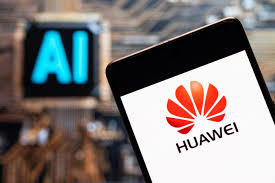Huawei is accelerating its transition into the 5G-Advanced (5G-A) era, revealing bold projections that blend AI intelligence with next-generation mobile technology. The tech giant anticipates that by the end of 2025, more than 100 million smartphones will support 5G-Advanced, alongside over 50 large-scale commercial 5G-A networks globally.
AgenticRAN: AI-Embedded Network Innovation
During a recent industry event, Huawei introduced its AgenticRAN framework—a groundbreaking system designed to embed artificial intelligence directly into radio access network (RAN) operations. This integration allows for autonomous optimization of spectrum management, network configuration, and energy efficiency, paving the way for self-learning and self-healing mobile networks.
“5G-Advanced isn’t just faster 5G—it’s smarter 5G,” said Dr. Yang Chaobin, Huawei’s President of ICT Products & Solutions. “By integrating AI into the very fabric of the network, we’re enabling unprecedented efficiency, flexibility, and user experience.”
Bridging the Gap Between 5G and 6G
Huawei’s 5G-A roadmap aligns with global trends toward intelligent automation, where networks leverage data-driven insights to reduce operational costs and enhance reliability. The AI-embedded approach could also help carriers dynamically balance performance with power consumption, an increasingly critical factor as networks become more complex and energy demands rise.
Analysts See 5G-A as a Stepping Stone to 6G
Industry analysts view 5G-Advanced as a vital bridge between existing 5G infrastructure and the forthcoming 6G standard, offering higher throughput, ultra-low latency, and adaptive connectivity. “Huawei’s aggressive 5G-A roadmap reinforces its technological leadership,” one telecom research analyst noted. “By combining AI with advanced networking, the company is positioning itself at the forefront of the next connectivity revolution.”
Global Deployment on the Rise
Commercial 5G-Advanced deployments are already underway in Asia, the Middle East, and Europe. Huawei’s forecasts suggest that within two years, AI-integrated networks could redefine global mobile communications, ushering in an era of intelligent, efficient, and adaptive connectivity.</p

